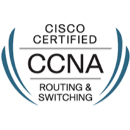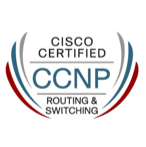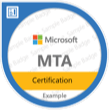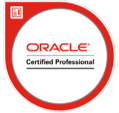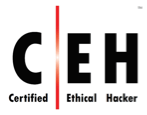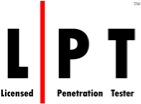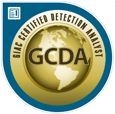CCENT – Cisco Certified Entry Networking Technician
The CCENT certification validates the skills required for entry-level network support positions. CCENT certified professionals have the knowledge and skill to install, operate, and troubleshoot a small enterprise branch network, including basic network security.
Having CCENT means to have what it takes to manage a small, enterprise branch network.
CCNA – Cisco Certified Network Associate
The CCENT certification validates the skills required for entry-level network support positions. CCENT certified professionals have the knowledge and skill to install, operate, and troubleshoot a small enterprise branch network, including basic network security.
Having CCENT means to have what it takes to manage a small, enterprise branch network.
CCNP – Cisco Certified Network Professional
Cisco Certified Network Professional (CCNP) Routing and Switching certification validates the ability to plan, implement, verify and troubleshoot local and wide-area enterprise networks and work collaboratively with specialists on advanced security, voice, wireless and video solutions. The CCNP Routing and Switching certification is appropriate for those with at least one year of networking experience who are ready to advance their skills and work independently on complex network solutions.
OCA-DB – Oracle Database Administrator Certified Associate Certification
Oracle Database technology is used by the world’s leading companies to manage critical business functions, systems and processes.
Becoming Oracle Database certified broadens your knowledge and skills by exposing you to a wide array of important database features, functions and tasks. Oracle Database certification teaches you how to perform complex, hands-on activities through labs, study and practice.
MTA-windows 10/2016- Microsoft Technical Certifications
MTA certifications address a wide spectrum of fundamental technical concepts, assess and validate core technical knowledge, and enhance technical credibility. Note: MTA exams do not qualify for MCP certification, nor are they a prerequisite for MCSA or MCSD certification.
GCWN – GIAC Certified Windows Security Administrator
GIAC Certified Windows Security Administrators (GCWNs) have the knowledge and skills needed to configure and manage the security of Microsoft operating systems and applications, including: PKI, IPSec, Group Policy, AppLocker, DNSSEC, PowerShell, and hardening Windows against malware and persistent adversaries. Candidates should be familiar with Windows 7, Windows 10, Server 2012, and Server 2016.
OCP-DB – Oracle Database 12c Administrator Certified Professional
The Oracle Certified Professional (OCA / OCP) Database Administrator (DBA) certification is designed to reflect proficiency in Oracle database architecture, installation, administration, performance tuning and troubleshooting. A series of exams revolving around Oracle Database 11g must be passed in order to attain the current Oracle OCP DBA certification.
OCA-Java – Oracle Certified Associate (Java SE 8 Programmer Certification)
The Java SE 8 Oracle Certified Associate (OCA) certification helps you build a foundational understanding of Java, while expanding your knowledge of general programming. Java SE 8 significantly changes the way Java Programmers write code. Earning a Java SE 8 Certification gives you the tools to make the most of the new features within Java SE 8.
CEH- Certified Ethical Hacker Certification
A Certified Ethical Hacker is a skilled professional who understands and knows how to look for weaknesses and vulnerabilities in target systems and uses the same knowledge and tools as a malicious hacker, but in a lawful and legitimate manner to assess the security posture of a target system(s). The CEH credential certifies individuals in the specific network security discipline of Ethical Hacking from a vendor-neutral perspective.
LPT – Licensed Penetration Tester
The licensed penetration tester course prepare trainees to master penetration testing methodology covering a wide range of skill from ethical hacking to IT network mapping, risks and vulnerability analysis. The Pentester is committed to the code of ethics wile conducting sensitive actions on organizational networks. The pentester will be also qualified to present to the management the outcome report in a clear and effective manner enabling tp take practical action to mitigate discovered risks.
OSCP – Offensive Security Certified Professional
An OSCP is able to identify existing vulnerabilities and execute organized attacks in a controlled and focused manner, write simple Bash or Python scripts, modify existing exploit code to their advantage, perform network pivoting and data ex-filtration, and compromise poorly written PHP web applications.
The OSCP examination consists of a virtual network containing targets of varying configurations and operating systems. At the start of the exam, the student receives the exam and connectivity instructions for an isolated exam network that they have no prior knowledge or exposure to.
The candidate is expected to submit a comprehensive penetration test report, containing in-depth notes and screenshots detailing their findings. Points are awarded for each compromised host, based on their difficulty and level of access obtained.
OSCP – Offensive Security Certified Professional
An OSCP is able to identify existing vulnerabilities and execute organized attacks in a controlled and focused manner, write simple Bash or Python scripts, modify existing exploit code to their advantage, perform network pivoting and data ex-filtration, and compromise poorly written PHP web applications.
The OSCP examination consists of a virtual network containing targets of varying configurations and operating systems. At the start of the exam, the student receives the exam and connectivity instructions for an isolated exam network that they have no prior knowledge or exposure to.
The candidate is expected to submit a comprehensive penetration test report, containing in-depth notes and screenshots detailing their findings. Points are awarded for each compromised host, based on their difficulty and level of access obtained.
GCDA – GIAC Certified Detection Analyst
The GIAC Certified Detection Analyst (GCDA) is an industry certification that proves an individual knows how to collect, analyze, and tactically use modern network and endpoint data sources to detect malicious or unauthorized activity. This certification shows individuals not only know how to wield tools such as Security Information and Event Management (SIEM) but that they know how to use tools to turn attacker strengths into attacker weaknesses.
Certified Expert All-Source Analyst (CEAA)
demonstrate a candidate’s ability to use different types of Intelligence Sources (Intel such as: GEOINT, MASINT, SIGINT, and OSINT) and utilize the collaboration and visualization tools, applications, and programs used by the various sources to maintain battlespace awareness.



